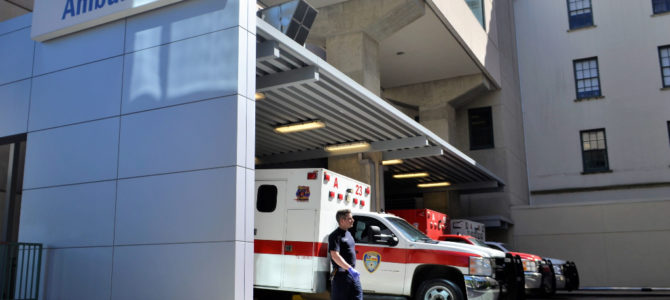Everyone knows the U.S. health care system is unsustainable, while medical care is already both unaffordable and too often inaccessible. Democrats’ answer to our nightmare is to hide changes to health care within their bills disguised as “infrastructure” — changes that will make care even less available.
What’s in the $1.2 Trillion ‘Infrastructure’ Bill?
Amidst such real infrastructure projects as roads, bridges, tunnels, and the electric grid, the $1.2 trillion infrastructure bill contains two important health policy changes. Both reduce Americans’ access to medical care.
The bill resumes a 2 percent cut in payments to Medicare providers, on top of all the other federal payments reductions. By cutting provider reimbursements (again), Democrats’ infrastructure bill reduces the availability of care, the same way the Affordable Care Act’s (ACA’s) Medicaid cuts reduced access to care for enrollees.
In 2009, before Obamacare, the average maximum wait time for a Medicaid enrollee to see a primary care physician was an unacceptable 99 days. In 2017, as a result of payment cuts to Medicaid physicians in the ACA and the greater bureaucratic burden, average maximum wait times had increased to an unconscionable 175 days.
A second health care provision buried in the $1.2 trillion infrastructure bill delays implementation of the Medicare Part D Rebate Rule, a President Trump-era rule that would inject competitive forces into the market for prescription drugs. Just like payment cuts, delaying the rule keeps desperately needed drugs unaffordably expensive and therefore unavailable.
What’s in the $5 Trillion ‘Infrastructure’ Bill?
Democrats’ so-called “human infrastructure” bill would do even more harm to health care by further expanding federal control. The bill would spend money we don’t have and can’t possibly afford, makes promises it cannot keep, and would further remove personal choice from medical decision-making. Touted as a $3.5 trillion package, the bill would cost closer to $5 or $5.5 trillion over the course of a decade, according to the Committee for a Responsible Federal Budget.
By adding new dental, vision, and hearing benefits to Medicare, this bill will produce both medical as well as fiscal problems. The proposed new benefits will add new costs, money that Medicare does not have. Even without this new spending, the Medicare Trust Fund will be insolvent by 2026. Including additional benefits will simply hasten the day of reckoning, when Medicare won’t be able to pay for seniors’ hospital care.
Dentists in the American Dental Association (ADA) strongly oppose additional Medicare benefits, for the same reason doctors strenuously object to Medicaid expansion. To support Washington’s spending on bureaucracy, payments to care providers must be reduced.
Democrats promise more care but can’t deliver because there is less money for care providers. This has been called bureaucratic diversion. When federal payment schedules are less than doctors’ or dentists’ cost of doing business, they can’t accept new Medicare or Medicaid patients for care (at least, not if they want to pay their nurses’ salaries and the electric bill).
States that expanded Medicaid under the ACA, like Illinois, increased insurance coverage but experienced reduced access to care. Contrast that with Texas, one of the 12 states that did not expand, where Medicaid enrollees did not suffer.
The $5 trillion infrastructure bill would also circumvent the will of these state governments like Texas by offering a form of Medicaid expanded coverage directly to state residents. Democrats wrote in their 2020 party platform that they wanted to redress the “refusal” of “Republican governors” to offer their state residents the full “benefits” of the ACA.
Those Medicaid “benefits” included 752 Medicaid enrollees in Illinois who died while waiting in line for medical care. The same tragic death-by-queueing appeared to have happened to 47,000 American veterans with government-provided Tricare insurance, who were unable to receive technically possible care in time to save their lives.
Washington can deliver insurance coverage. But Washington cannot deliver timely and life-saving medical care.
Washington politicians claim they know what is good for people, better than the people know themselves. Based on this false assumption, they take away our right to choose, make extravagant promises, and then pass mandates or sign executive orders. The more Washington regulates and controls, the less care Americans receive and the more freedoms we are denied.









